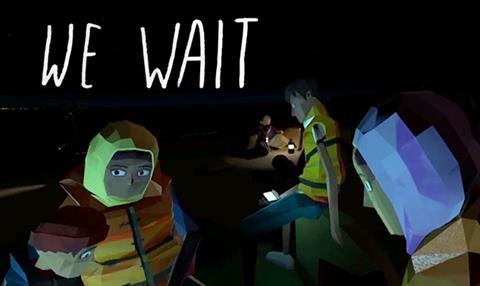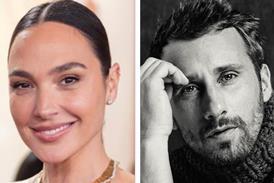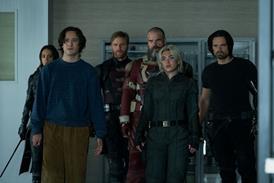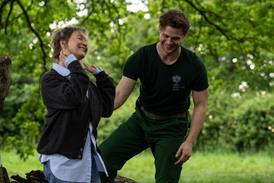Placing the viewer in a boat of migrants travelling from Turkey to Greece, the virtual reality experience marks a first for both the BBC and Aardman.

The BBC and Aardman Animations are at Sheffield Doc/Fest (June 10-15) demonstrating virtual reality project We Wait.
The project places the viewer amongst a migrant family travelling from Syria to Greece, initially on a beach and then in a boat making a treacherous crossing.
It marks Aardman’s first full VR experience and is part of a new BBC initiative to explore the emerging medium for future audiences.
ScreenDaily spoke to Dan Efergan, Aardman’s creative director of digital and the project’s co-director, and Becky Gregory-Clarke, a development producer at BBC R&D, to discuss working in virtual reality.
Screen: How did this project get off the ground?
BGC: I work in an innovation team called BBC Connected Studio, which is part of our research and development department.
We’re always looking for different types of content in the digital world including 360 video and virtual reality, which we’ve identified as an emerging area.
We put a call out last year for a VR pilot project that would explore the future of immersive storytelling and Aardman put in a really good proposal.
DE: When the brief came out, our ears pricked up in the interactive team.
Aardman has always been about story and characters, and being a load of geeks in a room, we were excited to explore how VR could help us tell stories better and increase emotional engagement, rather than just being a shiny toy.
Why did you think the animation medium would be a good way to depict the refugee crisis?
BGC: It’s a very weighty story, and it’s actually very hard to tell logistically. To get a reporter on the boat, to make the viewer feel like they’re there, that would be difficult.
We were very keen to get it right so we hired BBC Radio 4 chief correspondent Matthew Price to supervise the story, which while fictional, is all based on real events and interviews.
DE: Aardman isn’t generally involved in documentary, so making sure we got to the truth of the story was an interesting process. It kind of steamrollered everything else.
How have you utilised the interactive elements of VR?
BGC: At different parts of the crossing, different family members tell you their experiences.
It’s all based on eye contact. When you look at different characters they will respond to you individually. The interaction is very subtle but it gives you a real sense of being there.
DE: The eye contact creates all these interesting issues. During the experience you start considering yourself, where you fit, who you are within the story.
How do you intend for We Wait to be consumed?
BGC: We know not many people will be able to see it at the moment because it’s such a new technology, but we didn’t want to be restricted by that because it’s our job to explore the possibilities of these devices.
After Doc/Fest, we hope to put it on the BBC website so it can be consumed by anybody with an Oculus Rift headset.
DE: We definitely have desires for it to eventually spread as wide as possible.
What are your future plans for VR?
BGC: We’re really excited to be trying these experimental projects and we’re pleased with what we’ve created.
We’re exploring the possibilities in terms of storytelling and also looking at audience appetite. At this stage we just have to keep asking a lot of questions and see what the market goes.
DE: For us VR is a flag in the ground that we’re all running towards and really excited about, but we’re figuring out how to really create a business out of it.
As for Early Man [Aardman’s next feature], it’s too soon to say, but we’re getting really excited and we’re trying to convince [production company and distributor] StudioCanal to do stuff.
At the very least we’ll have 360 rigs in the studio recording behind-the-scenes.
We Wait will be shown at Doc/Fest until June 15 and is available to view via the newly-launched BBC Taster platform

































No comments yet